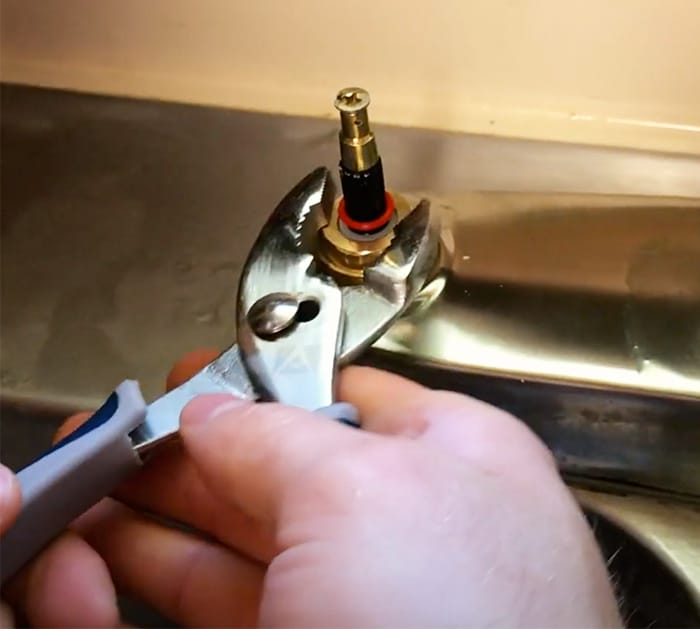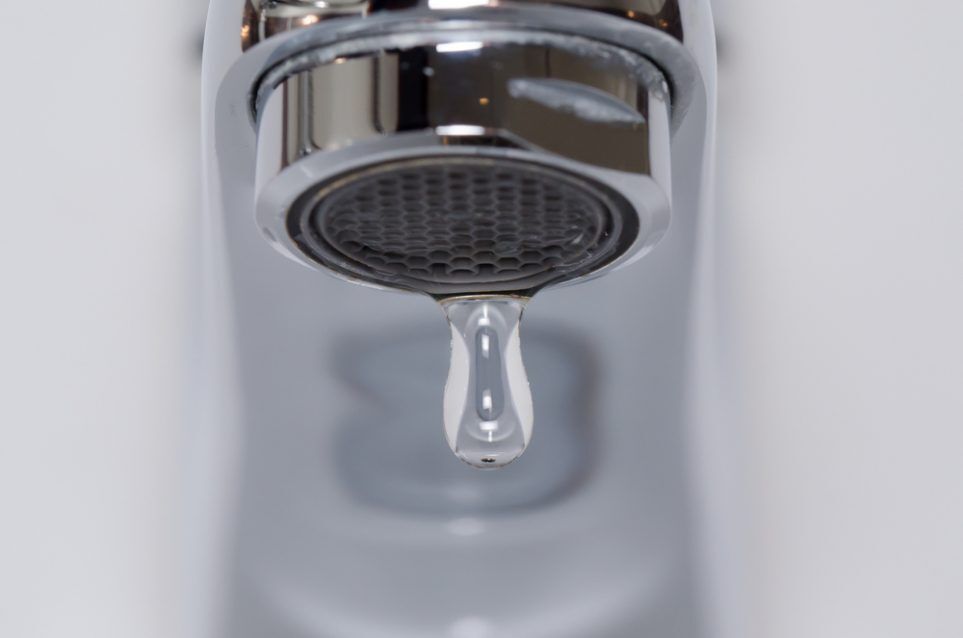When It's Crucial to Resolve a Leaking Faucet
When It's Crucial to Resolve a Leaking Faucet
Blog Article
This great article directly below relating to Why Are My Faucets Dripping (And Can I Fix It Myself)? is relatively attention-grabbing. Read it yourself and figure out what you think of it.

Dripping faucets could look like a small inconvenience, however their influence goes beyond just the nuisance of the sound. From wasting water to sustaining unneeded financial costs and health and wellness threats, overlooking a dripping faucet can result in different repercussions. In this post, we'll look into why it's crucial to resolve this typical family problem immediately and successfully.
Waste of Water
Environmental Impact
Trickling taps add dramatically to water wastefulness. According to the Epa (EPA), a solitary tap leaking at one drip per second can waste greater than 3,000 gallons of water annually. This not only pressures water sources however also influences ecological communities and wildlife dependent on them.
Step-by-Step Overview to Taking Care Of a Dripping Faucet
Devices Required
Prior to attempting to take care of a dripping tap, gather the essential tools, consisting of an adjustable wrench, screwdrivers, substitute components (such as washers or cartridges), and plumber's tape.
Typical Faucet Issues and Their Solutions
Determine the sort of faucet and the certain concern causing the drip. Typical issues include worn-out washers, rusty shutoff seats, or damaged O-rings. Refer to producer directions or on-line tutorials for detailed guidance on repair work.
Financial Expenses
Enhanced Water Expenses
Beyond the environmental influence, trickling taps can pump up water expenses significantly. The built up wastage over time equates into higher energy costs, which could have been avoided with prompt repair work.
Potential Property Damages
Furthermore, long term leaking can lead to harm to components and surface areas surrounding the tap. Water accumulation can trigger staining, rust, and also structural concerns if left ignored, resulting in extra fixing costs.
Health and wellness Problems
Mold and Mildew Development
The consistent presence of wetness from a leaking faucet produces an ideal environment for mold and mildew development. These fungis not just jeopardize indoor air quality however likewise present health dangers, especially for people with respiratory system conditions or allergies.
Waterborne Diseases
Stationary water in trickling faucets can become a breeding place for microorganisms and various other virus, enhancing the risk of waterborne diseases. Contaminants such as Legionella germs prosper in stationary water, possibly bring about serious health problems when ingested or inhaled.
Do it yourself vs. Specialist Repair work
Advantages and disadvantages of Do It Yourself Repair
While some may try to deal with a trickling faucet themselves, DIY repair work include their very own set of challenges. Without appropriate knowledge and tools, do it yourself attempts can exacerbate the issue or result in incomplete repairs, lengthening the problem.
Benefits of Employing a Specialist Plumber
Hiring a professional plumber makes sure that the underlying reason for the leaking tap is resolved effectively. Plumbings possess the know-how and tools to detect and fix tap concerns successfully, conserving time and decreasing the threat of additional damages.
Ecological Duty
Private Contribution to Conservation
Taking responsibility for fixing trickling taps lines up with broader initiatives towards water conservation and ecological sustainability. Every person's actions jointly make a substantial effect on preserving precious sources.
Sustainable Living Practices
By focusing on timely repairs and embracing water-saving practices, people contribute to lasting living practices that profit both existing and future generations.
Preventive Measures
Normal Upkeep Tips
To prevent leaking taps, execute routine maintenance such as cleansing aerators, inspecting for leaks, and changing worn-out parts promptly. Additionally, consider setting up water-saving gadgets or upgrading to a lot more effective fixtures.
Relevance of Prompt Repairs
Attending to leaking taps as soon as they're noticed prevents more water waste and possible damages, eventually saving both water and cash over time.
Influence On Home Value
Perception of Well-Maintained Residential Or Commercial Property
Preserving a building in good condition, consisting of resolving upkeep problems like trickling taps, improves its perceived worth and charm among possible customers or lessees.
Impact on Resale Value
Properties with properly maintained plumbing fixtures, consisting of faucets, command greater resale worths in the real estate market. Resolving leaking taps can contribute to a favorable impression during property inspections and settlements.
Verdict
Addressing a leaking tap goes beyond mere comfort; it's a vital action towards preserving water, reducing financial expenses, and securing wellness and property. Whether via do it yourself repairs or specialist support, taking action to repair dripping faucets is a little yet impactful method to promote liable stewardship of resources and add to a healthier, more sustainable future.
How to Fix a Leaky Faucet: Step-by-Step Repair Guide
A leaky faucet may seem like a simple annoyance, but if it's not fixed promptly, that leak could cost hundreds to potentially thousands. From water damage to mold, mildew, and high water bills, even a tiny leak can be catastrophic if left unattended. Damage like this can even affect the overall value of your home, so it's important to take the right approach for leaky faucet repair. You may need the help of a plumber in some cases, but we've got a few tips you can try on how to fix a leaky faucet before calling the pros.
Four Faucet Types
When you're learning how to fix a leaky faucet, the first step is knowing what kind of faucet you're working with! There are four common types.
Cartridge Faucets
Cartridge faucets come in one- or two-handled varieties. In one-handled cartridge faucets, hot and cold water combines in a single cartridge. In the two-handled versions, hot and cold water are controlled separately and mixed in the faucet.
Ball Faucets
Ball faucets have a single lever you push up and down to adjust the pressure and rotate to change the temperature. A slotted metal ball controls the amount of water allowed into the spout.
Compression Washer Faucets
They're the oldest type of faucet, but they're still used in many homes — especially older ones. Compression faucets have two separate handles that, when turned, raise or lower the washer that seals a water valve. This valve stops water from flowing through the faucet when it is turned off.
Disc Faucets
Disc faucets rarely need to be repaired due to their maintenance-free design. The water flow is controlled by two discs — the upper one raises and lowers against a fixed lower disc, creating a watertight seal. If your disc faucet starts leaking, you may need to replace the seals or clean residue buildup from the inlets.
Fixing a Leaky Faucet
Step 1: Turn Off the Water
Whether you're learning how to fix a leaky bathtub faucet or how to fix a leaky kitchen faucet, always turn off the water supply to your working area when you're fixing a leak. The last thing you want is a flood added to your list of things to fix.
Look for the shutoff valves below your sink or around the tub and turn them clockwise to stop the water flow. If your faucet doesn't have shutoff valves, you may need to turn off the water for the whole house. Check to make sure it's off by turning the faucet on. If nothing comes out, you're ready to start the repair.
Step 2: Take Apart the Faucet
How you disassemble your faucet depends on the type of fixture you have. You can use a flathead screwdriver to remove the caps on top of the handle or handles for cartridge and compression faucets. Inside, you should see handle screws. Unscrew these with a screwdriver to remove the handle.
Disc- and ball-style faucets will typically have an inlet screw near the handle, and removing that will reveal the interior of the faucet.
Detach the Valve Stem
For cartridge- and compression-style faucets, you'll see the inner valve stem or cartridge once you remove the faucet handles. If you have a compression faucet, unscrew the brass valve stem. If you have a cartridge faucet, pull out the cartridge. If your cartridge has been in place for a while, it may require some tools or extra force to remove it due to mineral deposits.
Examine and Replace Parts
Once you've removed the parts, check them out to confirm what needs to be replaced. You may see corroded rubber washers, O-rings, stems, or cartridges. On a ball-style faucet, check the seats and springs for damage.
If you need to repair a leaky disc faucet, check the inlet and seals on the lower disc.
Once you determine what parts must be replaced, visit your local hardware store. Bring the damaged parts with you to ensure you can purchase the correct components to replace them.
Clean Valves and Faucet Cavity
If you've removed a stem or cartridge, you may notice mineral buildup in the faucet's threads. Use white vinegar to clean the valve seat by soaking it for a few minutes, then scrub it away with a soft toothbrush and rinse with warm water. You can also clean the interior of the faucet in the same way.
Reassemble the Faucet
Once your faucet is cleaned and the required parts have been replaced, it's time to reassemble it. Put the pieces back together and slowly turn the water supply back on. Doing this slowly is crucial because too much initial water pressure can damage the new hardware you've just installed.
https://homewarranty.firstam.com/blog/how-to-fix-leaky-faucet

I recently found that article on Should I Repair or Replace a Leaky Faucet? when doing a lookup on the internet. In case you liked our blog entry plz don't forget to share it. We enjoy reading our article about What Causes Leaky Faucets & How To Fix Them.
Report this page